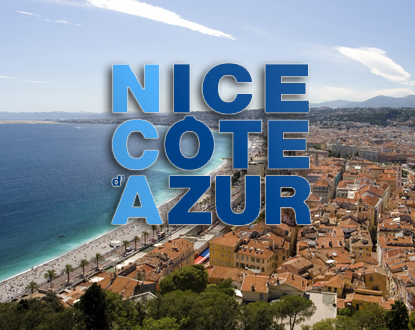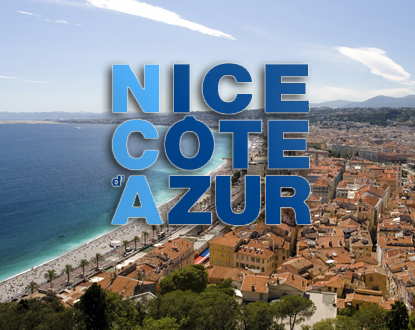Focus on the competencies of the metropolis and the benefits for the new member municipalities and all the 46 municipalities that form the Nice Côte d’Azur metropolis. To fully understand this new local institution.
 The benefits for the 46 municipalities of the Nice Côte d’Azur metropolis
The benefits for the 46 municipalities of the Nice Côte d’Azur metropolis
With the “departmental road” competence transferred by the General Council, the Metropolis will have new financial, human, and material resources. These resources can be mobilized for the benefit of all the municipalities.
Thus, a restructuring of the services will allow each Mayor to have a high-level engineer or executive who will be his exclusive contact for all technical operations. This subdivision officer will have the authorization to directly engage, under his signature, urgent and routine maintenance operations.
The Metropolis support functions will be increasingly available to municipalities to provide more advice, expertise, studies. These services will prevent municipalities from systematically resorting to firms whose services are often very costly.
The 27 municipalities that currently make up Nice Côte d’Azur will continue to receive a Community Solidarity Grant (DSC) from the Metropolis at the same level as currently received.
The fiscal regime of the Metropolis is the same as that of the Urban Community. Municipalities will continue to set and collect local taxes as they currently do. The transition to a Metropolis will not result in an increase in taxation.
Competencies of the metropolis
Economic, social, and cultural development and planning
- Creation, development, and management of industrial, commercial, service, craft, tourism, port, or airport activity zones.
- Economic development actions
- Construction, development, maintenance, and operation of cultural, socio-cultural, socio-educational, and sports facilities of metropolitan interest.
Metropolitan space development
- Territorial coherence scheme and sector scheme; local urbanism plan and urbanism documents acting in lieu of them; creation and implementation of concerted development zones; constitution of land reserves
- Organization of urban transport; creation, development, and maintenance of roads; signaling; parking lots, urban travel plan
- Consideration of an overall development program and determination of development sectors according to the urban planning code.
Local housing policy
- Local housing program
- Supporting access to housing
- Improving the built housing stock, rehabilitation and resolution of unhealthy housing
City policy
- Contractual urban development, local development, and socio-economic insertion devices
- Local crime prevention devices
Management of services of collective interest
- Sanitation and water
- Creation, extension, and relocation of cemeteries and cremation sites, as well as the creation and extension of crematoriums
- Slaughterhouses, market slaughterhouses, and markets of national interest
- Firefighting and rescue services.
Protection and enhancement of the environment and quality of life policy
- Collection, elimination, and recovery of household waste and similar waste
- Air pollution control
- Noise pollution control
- Support for actions controlling energy demand
Only 3 additional competencies
- Departmental road
- School transport
- International economic promotion of the territory
Mayors retain the same prerogatives as in the Urban Community. Therefore, in terms of transferring competencies from the municipalities to the Metropolis, there is no difference from the situation in June 2009 at the time of our community council’s positive vote to join the Urban Community. The transfer conditions remain the same.
In addition to mandatory competencies, the Metropolis can exercise other optional competencies by decision of the Metropolis Council (e.g.: sports, tourism, culture…). Moreover, through an agreement with the General Council or the Regional Council, some of their competencies may be exercised by the Metropolis.
Maintenance of the autonomy of mayors
The Nice Côte d’Azur charter, which stipulates that the Mayor retains, in his municipality, control over operations related to intermunicipal cooperation, will be extended to the Metropolis. No decision concerning a municipality can be made without the Mayor’s approval.
The municipality remains at the heart of the system. The Metropolis will promote investment development at a controlled cost, with constant attention to sustainable development, enabling our territory to compete with other major European urban areas.
In terms of roadways and maintenance, only the Mayors will decide on the work to be done in their municipality based on the approved budget envelope.
A multi-annual investment plan will be established for each municipality in accordance with its priorities.
What impact for municipal staff and community staff?
All staff will continue to work on-site, within their current municipality or the current community premises, which will become metropolitan premises.
This staff will remain municipal personnel if they perform functions that fall under municipal competency; they will become Metropolis personnel if they perform functions that fall under metropolitan competency.
These operations will be carried out in full consultation with the personnel and municipalities. Mayors will be, in each of their municipalities, the masters of this operation, in liaison with their staff.
The benefits for new member municipalities
Currently, these municipalities are grouped in communities of municipalities whose small size limits their capacity to act (Vésubie: 4,400 inhabitants, Tinée: 2,600 inhabitants, Mercantour stations: 2,000 inhabitants).
By joining the Metropolis, these municipalities will be able to:
- Implement essential projects that they cannot currently support (e.g.: wastewater treatment plants in Isola 2000 and Saint-Martin-Vésubie, sanitation works in Roquebillière…).
- Receive a Community Solidarity Grant (DSC) from the Metropolis annually, which is unrestricted in use. This DSC amounts to approximately €800,000/year for all the valley municipalities, which will receive this amount in their general budget and can use it as they see fit. This solidarity will be added to the interventions of the General Council, which will continue to support municipal projects.
- Benefit from the services of the Metropolis (finance, legal, HR, urban planning…) and the support of numerous technicians and engineers who will provide expertise and studies.



